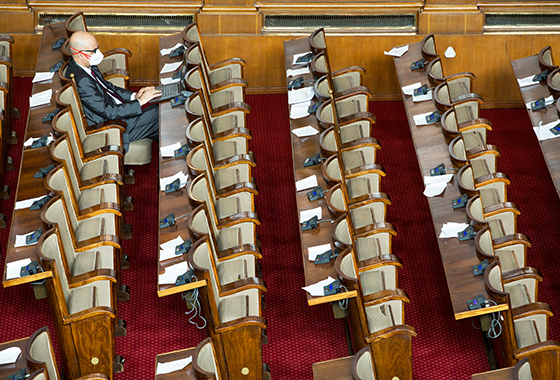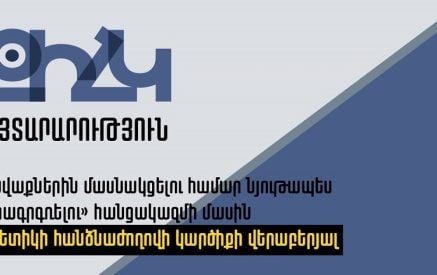How can parliaments adjust their role as guarantors of stability and democratic legitimacy during the current pandemic crisis? How can continuity of parliamentary oversight be ensured? Where do the boundaries of delegation of powers from national parliaments to the executive lie in emergency situations? And can democratic elections be organised in times of crisis? These were some of the questions that arose during a hearing by video-conference on “The role of national parliaments and the holding of elections in emergency situations”, organised on 28 May by PACE’s Committee on Political Affairs and Democracy and chaired by Dame Cheryl Gillan (United Kingdom, EC).
PACE President Rik Daems opened the debate, referring to the challenges of organising elections in the current context of crisis. “Conditions will definitely influence elections. In France, for instance, we saw in mid-March a first round of local elections and, due to the health crisis, the second round will only take place in June. We know that the results of this second round could be different than the result would have been maybe three months ago. The US is debating using a possible postal vote for the Presidential election. Democrats like it, expecting more votes, while Republicans dislike it since they expect fewer ballots… When dealing with an exceptional crisis like the current one, it is essential that whatever system we use should not hurt democracy,” he underlined.
In working out responses to the pandemic, there are four options that could be considered for parliaments, said Professor Meg Russell, Director of the Constitution Unit in the Department of Political Science at University College London. “First, they could simply close; second, they could limit their functions to essential or ‘emergency’ business; third, they could move online; and fourth, they could set up alternative new structures to deal with this unique temporary situation.” The first option being obviously rejected, all the others raise many questions. But choosing any of the options should be guided by one principle: “the crisis must not be an opportunity to strengthen governments against parliaments”, while “parliaments could do more to ensure that they are ready to face a future crisis”.
Iain Cameron, a member of the Venice Commission and a Professor at Uppsala University, referred to the possible “red lines” that no democracy should cross during a major health crisis. The great value of European constitutional heritage, he said, is that there are many different ways of ruling, and they are all legitimate and acceptable. However, though principles can be either vague or specific, there are definitely red lines. Amongst these, he said, “parliaments must never lose control over the executive power”. Parliaments “should never delegate all of their powers to governments, not even during a pandemic”, he stressed. They must continue “to function one way or another” and use their power “to set up committees of inquiry to look at special measures and assess their necessity and proportionality,” he added.
Read also
Oliver Kask, Chairperson of the Council of Democratic Elections of the Venice Commission of the Council of Europe and judge of the Court of Appeal of Estonia, referred to the report on the respect for democracy, human rights and the rule of law during states of emergency that the Venice Commission has just released. Rule of law-compliant emergency powers have, he said, “important in-built guarantees against abuse: the principles of necessity, of proportionality and of temporariness”. Respect for these principles must be subject to “effective, non-partisan parliamentary control and to meaningful judicial control by independent courts”. As far as elections during the current crisis are concerned, he recalled the necessity to balance electoral rights and “campaign” rights, as well as exercise judicial control over the postponement of elections. A qualified majority in parliament, he stressed, “might be required to avoid abuse of postponement”.
During the hearing, parliamentarians shared their experiences and good practices implemented in their respective countries (see full video recording by clicking on the link below).
This hearing will serve as a basis for the preparation of a report on “Democracies facing the COVID-19 pandemic” prepared by Ian Liddell-Grainger (United Kingdom, EC) who was appointed rapporteur.
PACE























































